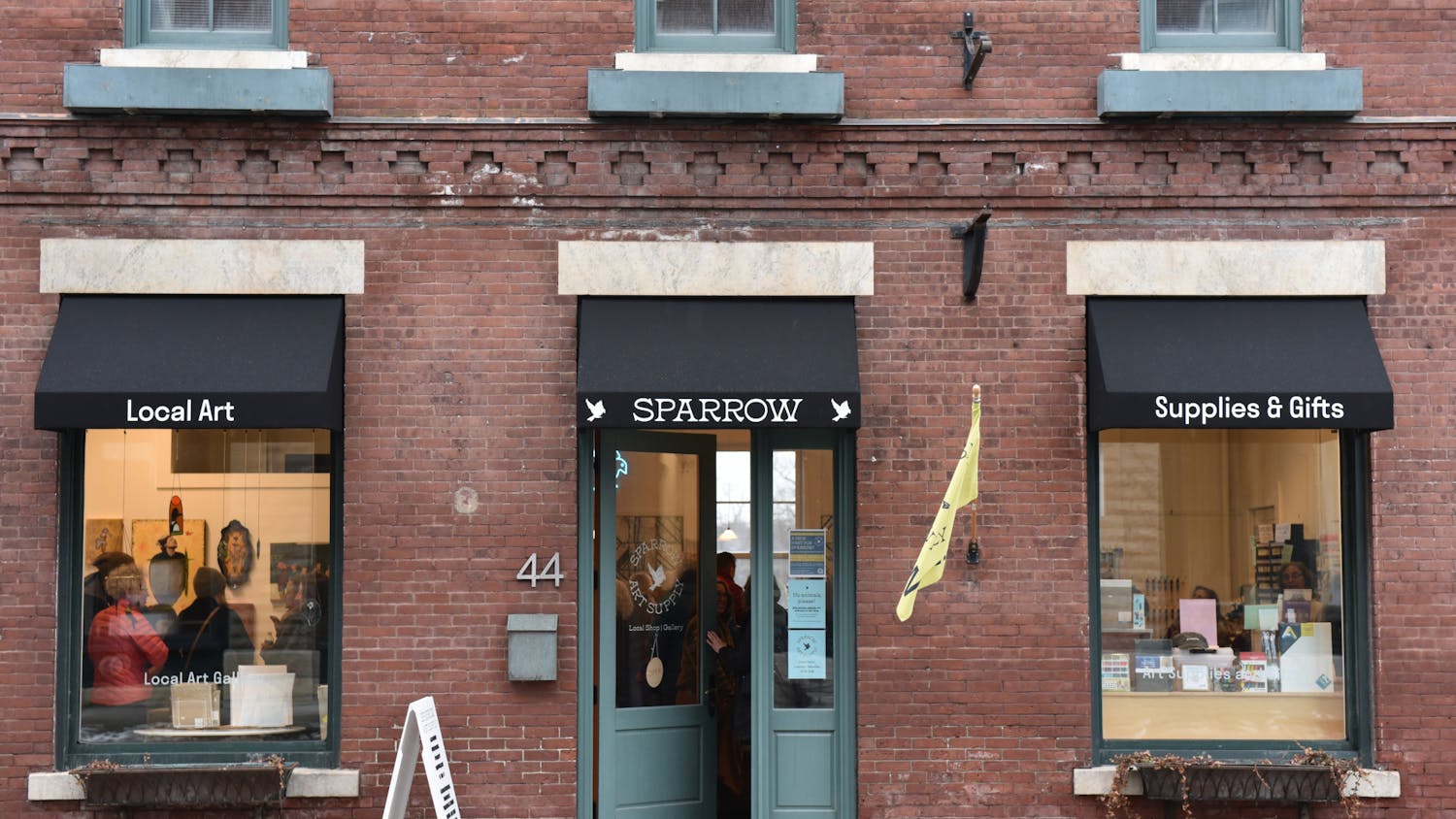Founded in the long shadow of the 2008 economic crisis and the anxieties surrounding employment which ensued, humanities programs across the country continue to seek ways to fight declining enrollments. The college’s new Center for the Humanities, housed in the Axinn Center, focuses on promoting cohesion, collaboration and scholarship between departments and other New England institutions. While the Center involves no new physical facilities, its leadership promises new approaches to teaching and cross-campus projects that will connect the myriad of humanities departments already at the college.
The Center is the product of a decade of conversations. According to Marion Wells, the Center’s co-director and a professor of English and American Literatures, the process began in 2010 when James Davis, a professor of Religion, called together a group of humanities faculty. Their informal meetings eventually produced the Humanities Steering Committee in 2011.
The creation of the Center was motivated by the recognition that the humanities had taken “a backseat” at the college and its peer institutions since 2008.
The Campus wrote about the state of humanities this October in an editorial, which highlighted the fallacy of many assumptions surrounding humanities majors – including, but not limited to, their perceived low salaries and poor employability. The editorial cited data from the Center for Careers and Internships, which showed that “arts and communication formed the largest employer for the Middlebury Class of 2018, while financial services came in second.”
The unemployment rates of 25–29-year-olds with Bachelor’s degrees in English and STEM fields were approximately the same, at 3.4 and 3.3% respectively, a 2019 report by the National Center for Education Statistics found. Similarly, the unemployment rates of Economics and Fine Arts majors both hovered around 4%.

Faculty members felt a growing need for a more concrete vision of the humanities at the college, according to the center’s co-directors Wells and Febe Armanios, professor of History. In the early stages of the process, they consulted humanities directors from Colby, Dartmouth and Yale, who provided data and inspired the creation of their collaborative co-directorship. A similar collaborative leadership model is reportedly used at Franklin and Marshall College.
Though Wells and Armanios assumed their positions in September 2019, the center has deliberately kept a low profile so as to focus on building a robust foundation.
“When we brought in these colleagues from Colby and Dartmouth and Yale, we were told, ‘Take your time in this initial building period, take your time getting things set up and get them set up in the right way, make sure you have the support of faculty,’” Armanios said. “It’s a consultative process.”
As part of this, the center appointed two humanities student fellows, Laura Friedrich ’20.5 and Molly Burnett ’22. Burnett was actively involved in helping build the center’s new website, which launched in early February.
One of the center’s main objectives is to establish the Axinn Center as the formal location of the humanities on campus, similar to the relationship of the sciences to Bicentennial Hall, or the arts and Mahaney Center.
[pullquote speaker="Molly Burnett '22" photo="" align="center" background="on" border="all" shadow="on"]Having a central home will increase the visibility of humanities on campus.[/pullquote]
“When it was originally opened as a building, [Axinn] was more or less envisioned to be a place of gathering and coalescing over the humanities on campus, but it didn’t end up quite formalizing as such,” Armanios said. The co-directors hope that this formal locus can promote cohesion and collaboration in humanities curricula and among the faculty teaching them.
Burnett echoed Armanios’ views, and added that having a central home will increase the visibility of humanities on campus.
“In a sense [the identity] isn’t there,” Wells said. “People would say ‘I do humanistic work,’ but whether they see themselves as belonging to a community of humanists on campus is a really different question up until this point.”
This sentiment persists in spite of the vast network of resources the college has invested in the humanities, including the over 40 Middlebury C.V. Schools Abroad, the New England Review, the CMRS-Oxford program and the Bread Loaf School of English. “There’s a lot of talk about those individual entities, but not about how they’re all the humanities,” Wells said.
Plans for the center include “Public Humanities courses,” which would connect the college’s humanities program to the Middlebury community. Public Humanities classes, which are reportedly standard practice at the college’s peer institutions, would include a “Humanities lab” that encompasses subjects such as manuscript workshops and paleography, which Wells and Armanios say the college has not been able to offer before. A grant proposal for the project has already been written, according to Wells.
The planners hope this collaboration could involve other colleges. Wells says that the center has sought to connect with other humanities centers in Vermont, and have received permission to join the New England Humanities Consortium (NEHC) with institutions including Amherst, Colby, Smith, Brown and the University of Connecticut. This membership gives the center access to new grant money available within the consortium.
Without a steady increase of new students majoring in the humanities, Wells expressed concern that some humanities departments may become so-called “service departments” – departments whose courses students only enroll in to fulfill distribution requirements. This in turn would negatively affect humanities departments’ ability to get new tenure-track positions.
Without the influx of young professors and new ideas, departments also risk looking dated and unattractive in the eyes of students. A vicious cycle forms.
“We need to show how absolutely central the core humanities skills and concerns are to creating responsible, ethical and vibrant lives after graduation,” the co-directors said in an email to The Campus.
The center’s inaugural event, writer Emily Bernard’s lecture titled “Black is the Body: Writing about Race in America,” will take place in Wilson Hall on Thursday, March 5. Bernard is a Professor of English at the University of Vermont and the author of several titles, including “Some of My Best Friends: Writings on Interracial Friendships.”
Comments



